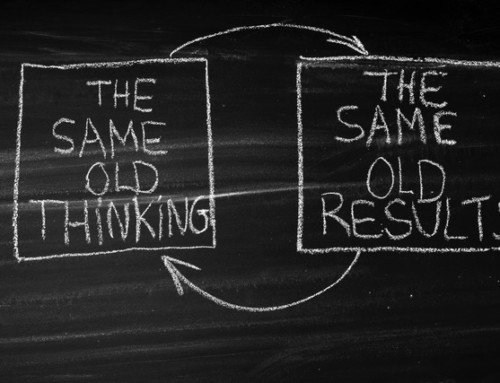You did your interview-prep homework. You dressed for success. You believe you nailed the interview. You sent your thank you notes. In short, you did everything right.
Now you’re waiting, perhaps not so patiently. You keep your phone at hand at all times and check your email inbox constantly. But you receive no word, no feedback at all. You just can’t stop wondering why.
You’re not alone. In today’s marketplace the silence seems to be more the rule rather than the exception. But why? There are three main reasons.
- The company is simply not that interested in you.
- Time and budgets are precious and need to be spent on more pressing issues, such as pursuing candidates for other more critical positions, or perhaps they’re still seeking the ever-elusive “perfect candidate,” or simply more focused on other aspects of running their business. Scott Carr, President and CEO Modria does his best to follow up with interviewees, but explains, “If I’m still in the process of interviewing candidates and an applicant pings me, I will reply but I would not reach out.”
- The potential risk for providing specific negative feedback is much higher than the reward. Specific negative feedback can expose a company to potential legal action. It is easier and safer to say nothing. One Indeed forum commenter opines “A ‘bad candidate’ with too much “in-your-face” personality, sends thank you notes and follow up calls and generally acts like a bad ex who isn’t over them for weeks, They [HR] figure if they just cut off all contact, they also cut off all chances of running into the ‘crazy ex’ candidate.”
Why do you crave feedback? As humans we have a psychological need for closure, one way or another. Additionally, feedback can help a job seeker better prepare for the next interview as the feedback allows the candidate to learn about themselves.
What to do when you don’t hear back after a job interview.
Knowing how long to wait after being interviewed, before you start asking for feedback begins with the interview itself. It is reasonable and important for a candidate to ask when they might expect a response from the employer. This is ESSENTIAL to setting up the opportunity to follow up.
Remember, employers will often underestimate response time.
- Make a follow-up plan and stick to it. Schedule a certain number of follow-up calls and email messages. The squeaky wheel does get noticed but you do not want to become a nuisance or a pest. If you do not hear back after your predetermined date, move on. No answer is an answer.
- Do not take it personally. You have marketable skills. Simply apply them elsewhere.
- Use your social network. Check LinkedIn, Facebook, Twitter, etc. for friends or colleagues at the company for endorsements or that can provide you with a status update. Recruiter Amy McGeachy of McGeachy Consulting recommends sincere candidates ask a recruiter for feedback in this way: “’I know you’re very busy so I won’t take up too much of your time. I am working extremely hard to find the right career opportunity and I could use your help. Based on our interaction during the recruitment process what’s one thing that I could do to improve my chances for future job prospects?’ Gracefully accept their feedback.“
- Be professional and gracious. In all follow-up email correspondence, voicemail messages and telephone conversations, keep your demeanor upbeat and your words light. It will be remembered if future opportunities at the company present itself.
- Keep the employer up-to-date regarding your job search. By letting the employer know if an offer is pending at another company you let them know you are still on the hunt. That may motivate them to either speed up the process with you, or give you a definitive negative decision. But don’t fake competing offers; it will bite you in the butt. “I watched candidates literally crumble in the process after telling a fib about other prospective jobs,” cautions McGeachy.
- If you did not get an offer from the company, make a note to circle back with the hiring manager in about 6 months to express your continued interest, to inquire how the new hire is doing, and ask if there may be additional opportunities that have opened up that might be a fit for your skills.
- Note your experience with the company in your job search log. The post-interview process may not be a direct reflection of the corporate culture (check Glassdoor.com to see if they’re listed and what applicants and employees say), but it will be good to remember this if they reach out to you in the future or if you decide to reapply again in the future.
Carr recalls with some compassion, “I have been a candidate in the past. If a recruiter gives me the cold shoulder I am not impressed. If a recruiter tells me I’m not a good fit, it’s a bummer but I appreciate the input. I even appreciate it if a recruiter tells me that they don’t know why I’m not a good fit but the company is moving on.”
Still waiting and feeling frustrated? As one Indeed commentor advises frustrated interviewees “As long as they are ‘interviewing more candidates, you are applying for more jobs at other companies.”
Interviewed. Ignored?!? Why? Shocking Truth!
Connie Dorigan, Founder and Director of Recruiting, sees the food processing industry as the link between good living and good people. She’s the west coast’s most experienced and trusted food processing recruiter. She also provides Executive and Career Coaching and lots of free job search tools. Once you’ve connected with Connie, you’ll always be connected.
© 2018 Connie Dorigan. All rights reserved.
This is a general interest article and does not constitute specific or legal advice.





